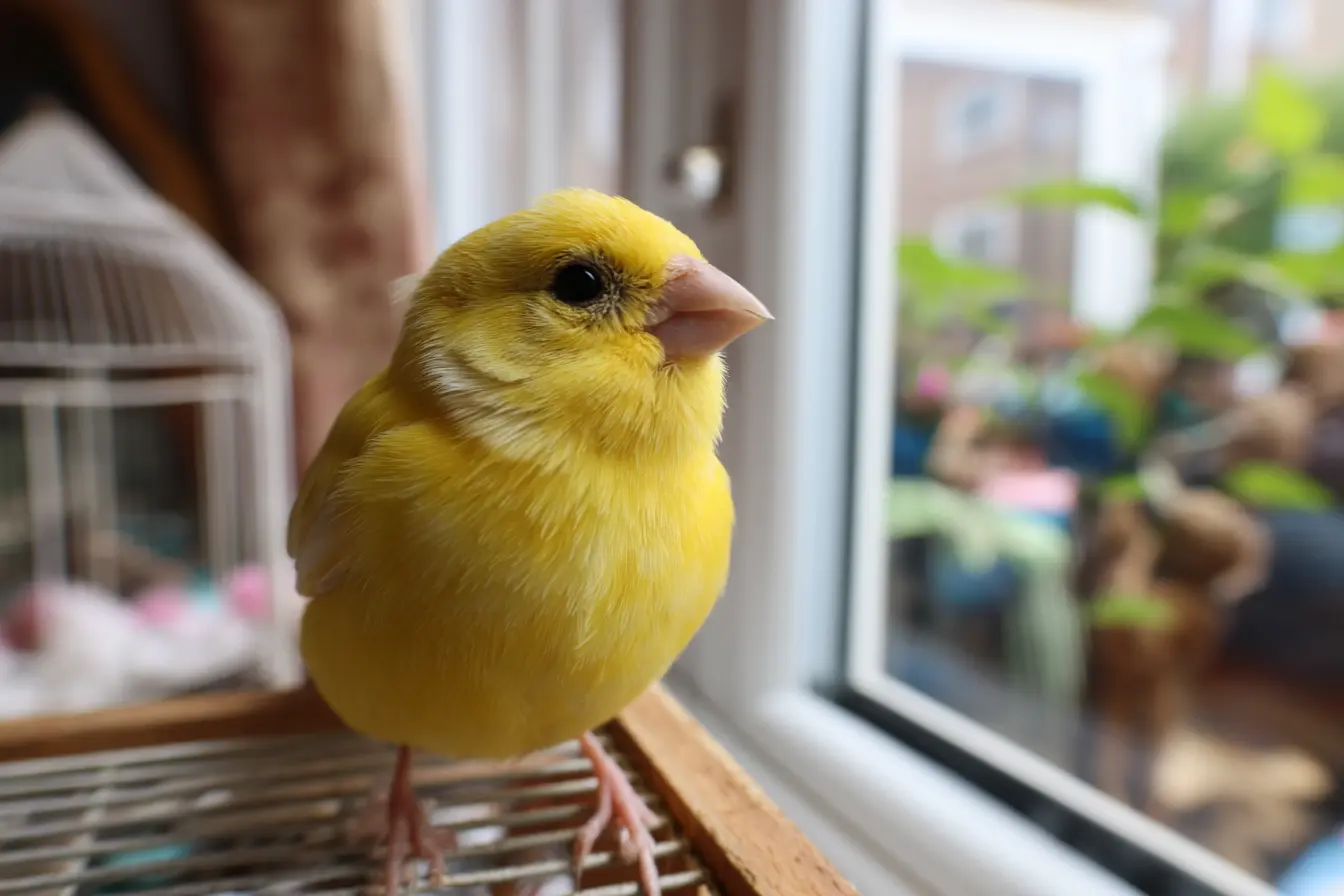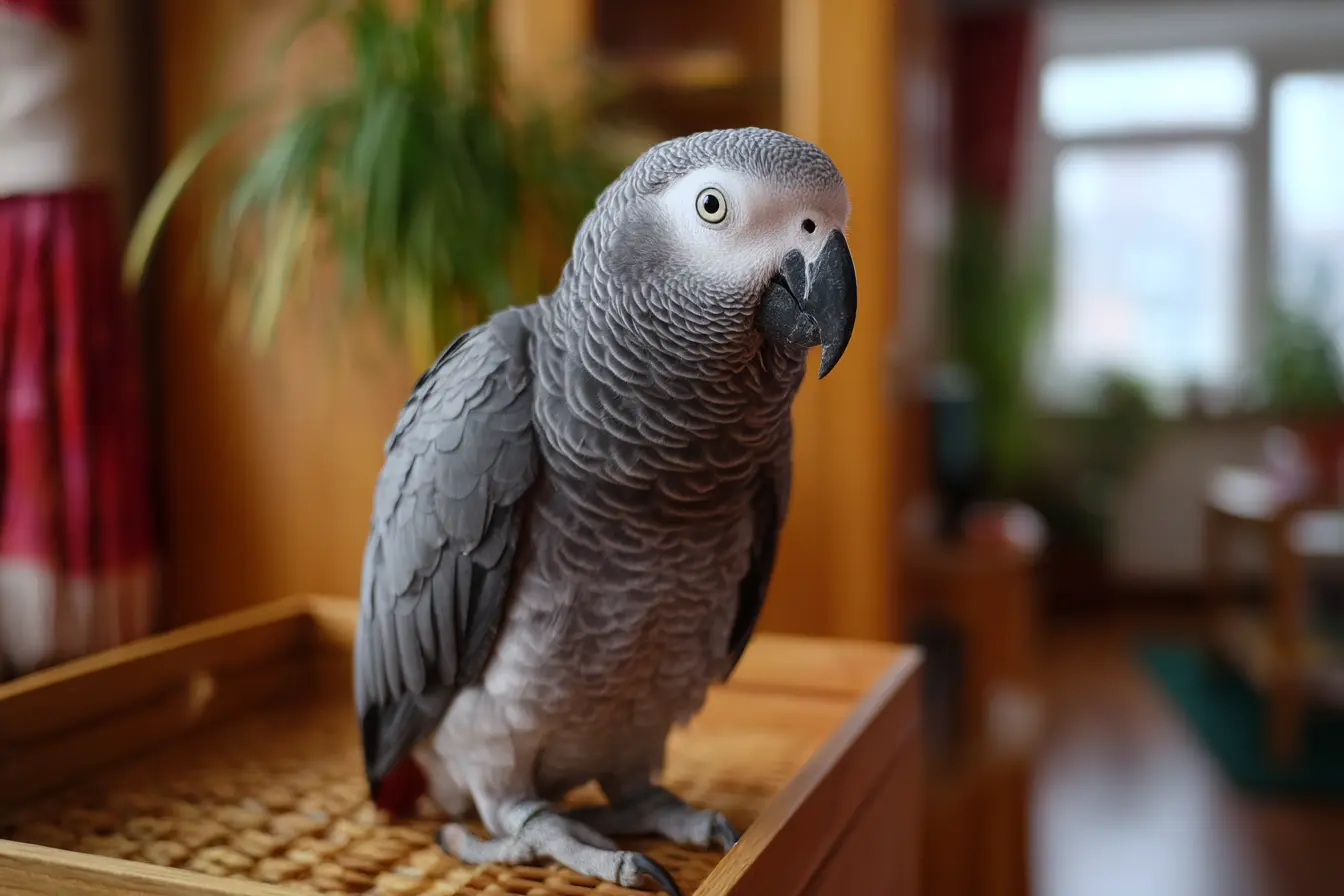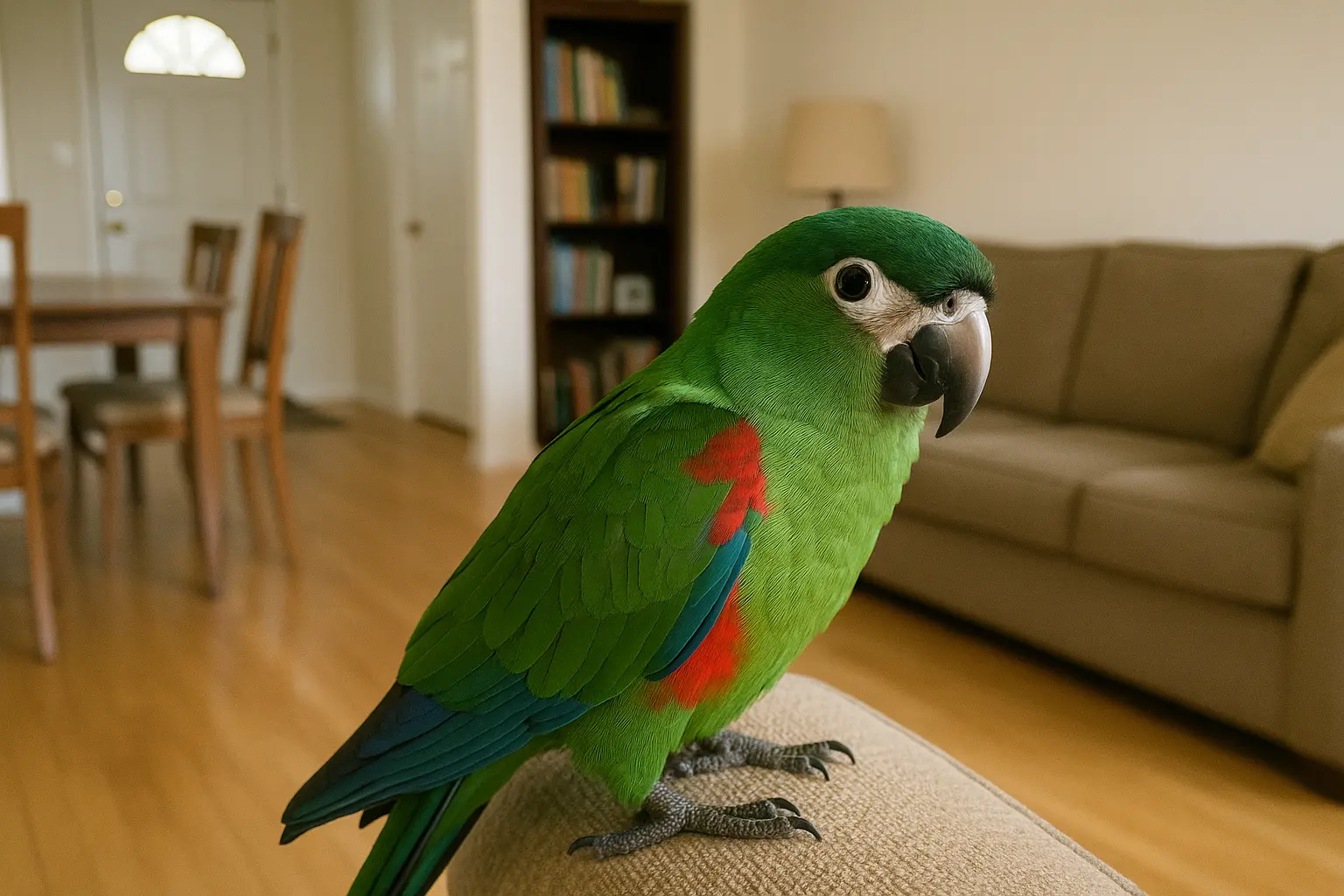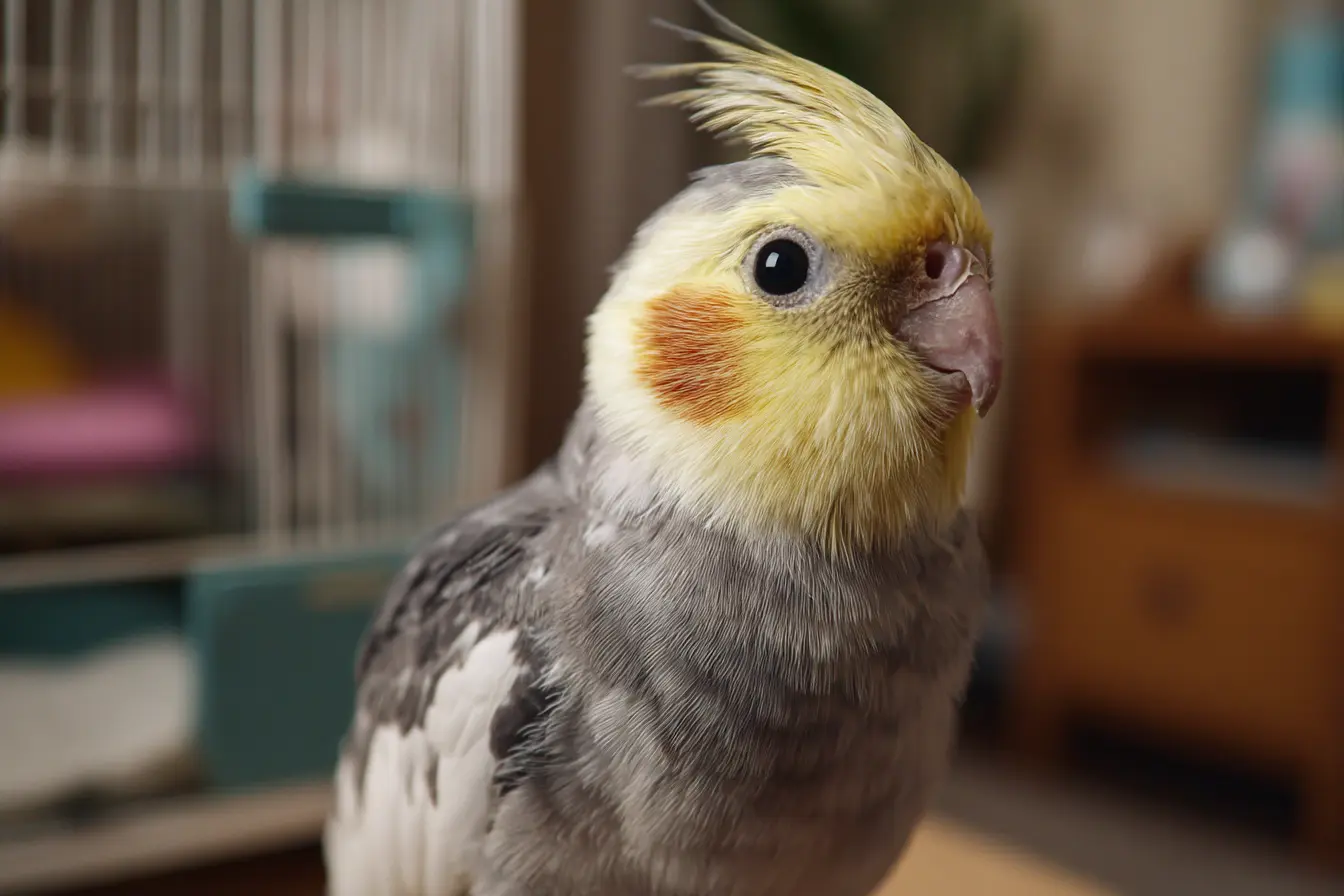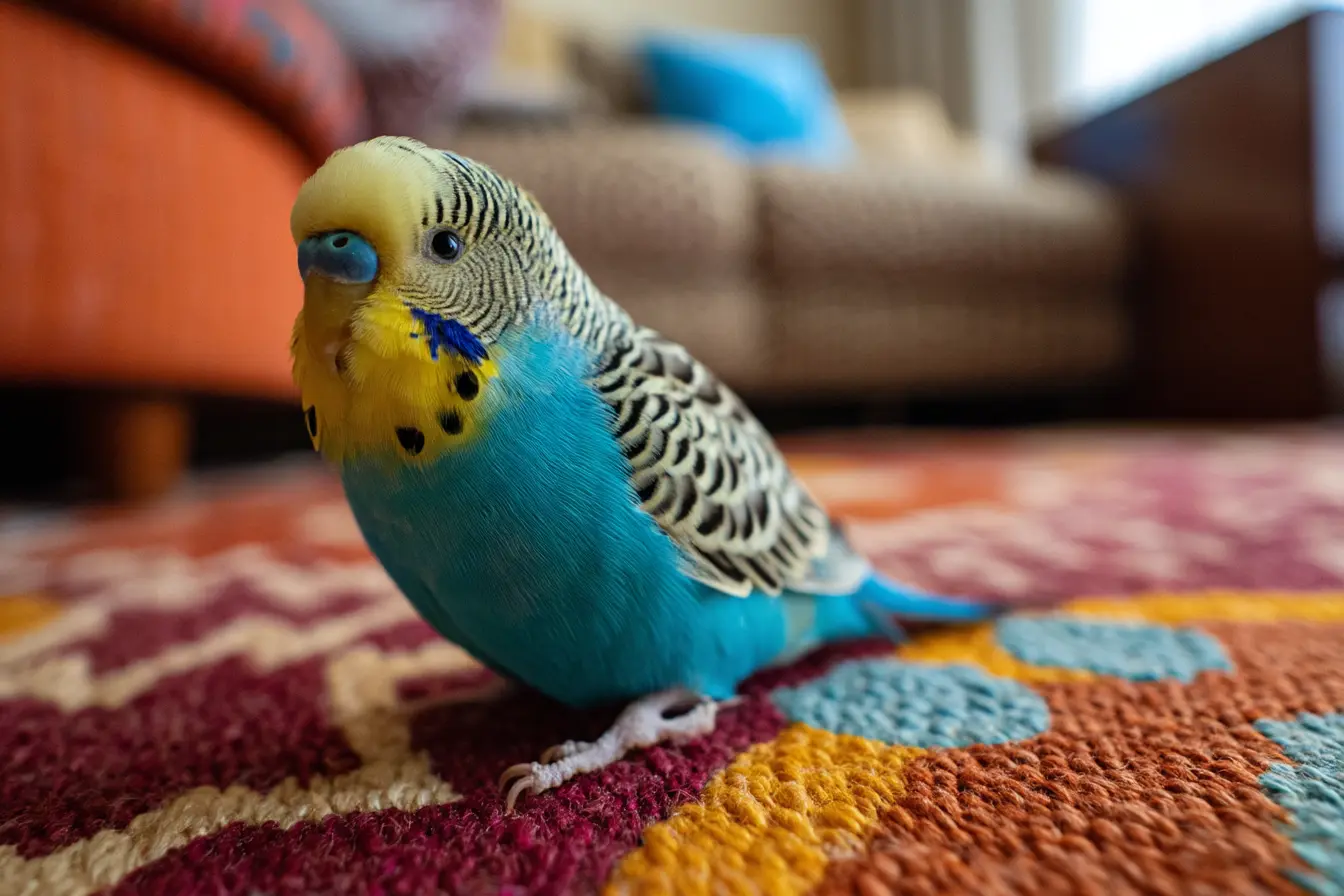
Summer Dangers to Birds: Essential Advice for Owners
Summer is a time for sunshine, open windows, and outdoor activities. However, warmer months also bring a unique set of dangers for pet birds. As temperatures rise, so do the risks — and many bird owners are unaware of just how vulnerable their feathered companions can be.
This guide outlines the most common summer hazards for birds, how to prevent them, and practical steps to ensure a safe, healthy summer season.
Overheating and Heatstroke
Birds are particularly sensitive to extreme heat. Unlike mammals, birds cannot sweat to regulate their body temperature. They rely on breathing, spreading their wings, and seeking shade to cool down.
Signs of Overheating:
- Panting or rapid, open-mouth breathing
- Holding wings away from the body
- Lethargy or weakness
- Fluffed or drooping feathers
- Loss of appetite
- Collapse or sudden death if untreated
Prevention Tips:
- Keep indoor temperatures between 18°C and 25°C.
- Provide shaded areas and cool spots inside the home.
- Offer shallow dishes of clean water for bathing.
- Mist birds lightly with tepid water (only if the bird enjoys it).
- Avoid direct sunlight exposure, especially through windows and conservatories.
- Use fans or air conditioning cautiously — ensure air currents are gentle and not blowing directly onto the bird.
Dehydration
Warm weather increases the risk of dehydration, especially if birds are active or housed in warm rooms.
Signs of Dehydration:
- Wrinkled or dry-looking skin
- Sunken eyes
- Lethargy
- Thick saliva
Prevention Tips:
- Ensure fresh, clean water is available at all times.
- Change drinking water at least twice daily in hot weather.
- Offer hydrating fruits like cucumber, apple (without seeds), and melon (if species-appropriate).
Direct Sunlight and Sunburn
Prolonged exposure to strong sunlight can cause sunburn, particularly in birds with pale or exposed skin (such as around the eyes and beak).
Prevention Tips:
- Never place cages in direct sunlight without shade.
- Use light curtains or shade cloths to diffuse sunlight entering the home.
- Provide plenty of shaded spaces during supervised outdoor time.
Open Windows and Doors
Summer often means open windows and doors to let in fresh air — but these pose a huge escape risk for pet birds.
Prevention Tips:
- Install secure flyscreens on windows and doors.
- Always check that windows are shut or screens are secure before allowing out-of-cage time.
- Supervise birds closely if windows or doors are open.
Outdoor Exposure Risks
Many owners enjoy letting birds have fresh air outside during summer. However, outdoor exposure brings new dangers:
- Predators: Birds of prey, cats, and dogs can attack pet birds even in enclosed gardens.
- Toxins: Lawns treated with pesticides, herbicides, or fertilisers can be fatal.
- Escape: Even clipped birds can catch a gust of wind and disappear.
Safe Outdoor Practices:
- Use secure aviaries with fine mesh and predator-proof locks.
- Never leave birds unattended outside, even briefly.
- Avoid placing cages directly on lawns or near plants treated with chemicals.
- Supervise any outdoor play or sunbathing sessions diligently.
Insects and Parasites
Summer brings a surge in insect activity, which can expose birds to parasites and bites.
Risks Include:
- Mosquitoes (potential carriers of avian malaria)
- Mites and lice
- Wasps and bees (stings can cause allergic reactions)
Prevention Tips:
- Install fine mesh screens on aviaries and windows.
- Regularly inspect birds for signs of mites or parasites.
- Keep outdoor areas clean and avoid standing water where mosquitoes breed.
Flowers and Plants
Fresh cut flowers are popular in summer, but many common varieties are toxic to birds. Birds are curious and may chew on petals, stems, or leaves, leading to poisoning.
Toxic Flowers Include:
- Lilies
- Daffodils
- Tulips
- Iris
- Oleander
- Chrysanthemums
- Hydrangeas
- Amaryllis
- Foxglove
- Azaleas
Risks:
- Ingestion of even small amounts can cause vomiting, diarrhoea, seizures, or sudden death.
- Commercial flowers are often treated with pesticides and preservatives, adding to the danger.
Prevention Tips:
- Avoid keeping toxic cut flowers or plants in the home.
- Choose bird-safe plants like spider plants, bamboo, and African violets.
- Always research before introducing any new plant into a bird household.
- Supervise birds carefully during free-roam time.
Barbecues and Smoke
Barbecues and garden parties are common in summer, but they bring hidden dangers:
- Smoke inhalation: Smoke from grills and fires is highly toxic to birds.
- Teflon-coated barbecue plates: Just like indoor cookware, heated Teflon outdoors can release deadly fumes.
- Hot surfaces: Birds can be severely burned if they land on or near hot grills.
Prevention Tips:
- Keep birds indoors during barbecues and outdoor cooking sessions.
- Ensure windows are closed if smoke could drift indoors.
Fireworks and Loud Noises
Fireworks, common at summer festivals and celebrations, can terrify birds, leading to panic, injury, or even heart attacks.
Prevention Tips:
- Bring birds indoors early before fireworks are expected.
- Play calming music or white noise to mask loud sounds.
- Cover cages partially with a breathable cloth to provide a sense of security.
Mouldy or Spoiled Food
In hot weather, food spoils quickly, leading to bacterial growth or fungal contamination, both dangerous to birds.
Prevention Tips:
- Remove uneaten fresh food after 1–2 hours.
- Wash food and water dishes thoroughly every day.
- Avoid leaving fruit or vegetables in the cage overnight.
Increased Risk of Household Toxins
Warmer weather often prompts cleaning, decorating, and DIY projects, which can expose birds to dangerous fumes and substances:
- Paint fumes
- Varnishes and glues
- Cleaning chemicals
Prevention Tips:
- Remove birds from any area being cleaned, painted, or renovated.
- Ventilate rooms thoroughly before allowing birds back in.
- Choose bird-safe, natural cleaning products wherever possible.
Conclusion
Summer offers wonderful opportunities for enrichment and fresh air for birds, but it also demands extra vigilance from owners.
By recognising seasonal risks — from overheating and dehydration to toxic plants and chemical exposure — you can protect your bird and ensure a happy, healthy summer.
Always plan ahead, supervise carefully, and adjust your bird's environment as needed to cope with rising temperatures and seasonal activities.
A few simple precautions can make the difference between a summer of joy and one of tragedy.
Contents
Tags
Vets near you
Speciality vets
- Aquatics vet specialists
- Birds vet specialists
- Camelids vet specialists
- Cats vet specialists
- Cattle vet specialists
- Deer vet specialists
- Dogs vet specialists
- Equines vet specialists
- Exotic vet specialists
- Goats vet specialists
- Pigs vet specialists
- Poultry vet specialists
- Sheep vet specialists
- Small Mammals vet specialists
- Wild vet specialists
Vet facilities
- Accessible by public transport
- Blood testing
- Car park nearby
- Client car park
- Dentistry
- Diagnostic imaging
- Disabled public access
- Flea and worm treatments
- Microchipping
- Mobile services
- Neutering
- Open at weekends
- Out-of-hours service
- Referral interests
- Referrals only
- Street parking outside
- Toilets available
- Vaccinations
